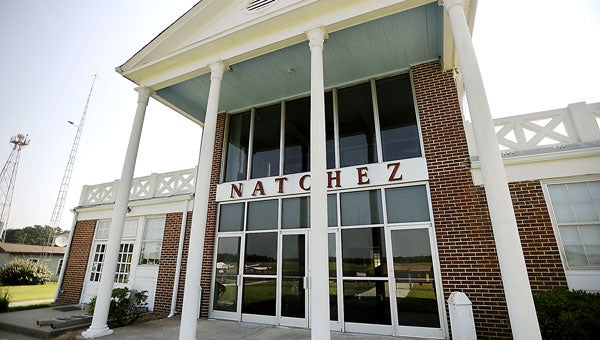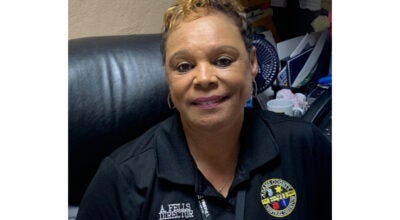Natchez case among unsolved
Published 12:05 am Sunday, May 4, 2014
By Amy Whitehead
LSU Manship School of Mass Communication
NATCHEZ — By February 1967, the members of the Adams-Jefferson Improvement Corporation screening board in Natchez had narrowed the pool of applicants for the open position of director of the Community Action Program, an anti-poverty program created by President Lyndon B. Johnson, to two finalists.
One was white, the other, Jessie Paris, black.
In Adams County, scene of much racial violence throughout the civil rights era, blacks competing for jobs with whites faced tremendous odds and risks. Paris, it is now learned, was no exception.
He and his wife faced anonymous attempts at intimidation — threatening notes, phone calls and vandalism to his residence and car — according to 47-year-old FBI investigative files obtained by the student Unsolved Civil Rights-Era crimes team at LSU’s Manship School of Mass Communication in April under the Freedom of Information Act.
The American Dream holds that hard work and commitment will be rewarded. But for blacks living in the South during the 1960s, such ambition could lead to threats, intimidation, violence or death.
Despite the threats, Paris, who was eventually hired for the job, could be considered one of the lucky ones. Certainly, he fared better than Wharlest Jackson, who two days earlier died when a bomb planted in his pickup exploded shortly after he was promoted at Armstrong Tire and Rubber to a position traditionally held by white men.
On the morning of March 1, 1967, Jesse Paris was getting in his car to head to work when he noticed something stuck on the windshield. The note, scrawled on a small brown paper bag, warned: “J.P., you are next if you go (to his job).”
It was signed “Nat KKK,” probably shorthand for national Ku Klux Klan.
Paris returned from work that night to find a large “K” — presumably for the Ku Klux Klan, which had a strong presence in the Natchez-Vidalia region at the time — painted on the rear door to his apartment.
Earlier that evening, spouse Patricia received a threatening phone call while visiting her mother’s home in Jackson. An unidentified man called and repeatedly said only “Jessie’s next” before hanging up.
The Rev. Shea Baldwin served on the screening board of the Adams-Jefferson Improvement Cooperation. According to FBI investigative reports, the Natchez minister told agents the board’s members were split along racial lines as to the preferred candidate to fill the position. The white board members wanted Major McDaniel; the black members sought Paris.
Baldwin thought it possible a member of the screening board had made those threats or caused them to be made because he or she would have had access to Paris’ resume with his address and phone number. Paris’ resume had been distributed to board members three months earlier.
Mamie Mazique, a black board member who worked for Charles Evers, director of the NAACP for the state of Mississippi, also believed the threats could have come from a board member, pointing out that the public would not have known that Paris had applied for the job.
Police reports from March 1967 reveal the investigation, or lack of, into the Paris case followed a pattern disturbingly common throughout the South during the civil rights era. Although Paris reported the threatening note and phone call to the Jackson Police Department, in an interview with FBI agents dated March 9, 1967, Chief Detective M.B. Pierce indicated his department was not actively investigating the incident.
Two weeks after those threats, someone slashed the tires on Paris’ car while it was parked outside a motel in Greenwood. The next day the interior of his car was set on fire. No arrests were made in this incidents, either.
It is not clear how long Paris remained the Natchez position or where he went from there.
A memorandum to the director of the Mississippi Sovereignty Commission dated March 16, 1967, describing the event suggested the perpetrators were likely other anti-poverty program employees. Sovereignty Commission files, available at Mississippi Department of Archives and History, indicate the commission had been monitoring Paris’ involvement in the civil rights movement in Mississippi for nearly a year.
The Wharlest Jackson case is one of a handful of civil rights-era murder cases still active under the Emmett Till Unsolved Civil Rights Crime Act of 2007. FBI investigators at the time wrote that accusing blacks of staging acts of violence against other blacks was not an uncommon tactic.
Despite the continual violence against blacks in Natchez and Adams County, as well as nearby Concordia Parish, many of Jackson’s white co-workers flatly told FBI agents that racial tensions in the area did not exist. Some went as far as to suggest the NAACP may have planted the bomb in an attempt “promote their cause” and “to stir up sympathy.”
No arrests have been made in the Jackson murder case. The primary suspects identified by the FBI at the time have since died.





